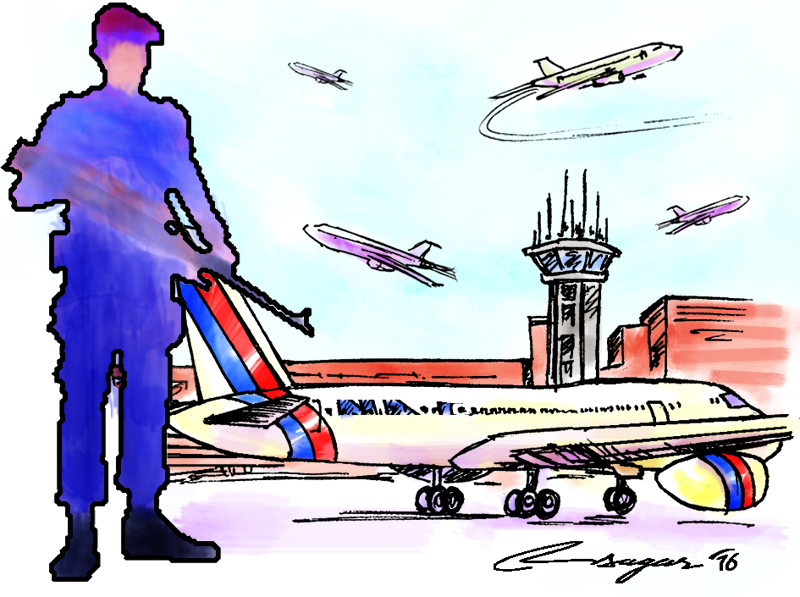Aviation safety and efficiency: Time for togetherness
While marking the ICAO Day we must not forget that nation can have better connectivity through reliable air transportation which can also contribute to the national economy. For this to materialise, the Ministry of Culture, Tourism and Civil Aviation needs to be more vigilant, strict and take stringent steps to combat anomalies seen in the civil aviation sector
The International Civil Aviation Organization (ICAO) Day on December 7 is marked to ensure that civil aviation of Nepal makes a leapfrog in embodying safety, security, efficiency and on the dot arrival/departure in case of Nepalese aviation.
It is high time that we did an actual appraisal and audit in the aviation arena. Nepal needs to translate into practice the ICAO rules, regulations and related legal instruments issued by CAAN and the civil aviation ministry. It is not that CAAN or the ministry does not have the rules or regulations to steer the aviation sector, especially the airlines. But implementation and monitoring is absolutely lacking.
ICAO was established to promote cooperation and “create and preserve friendship and understanding among the nations and peoples of the world” following a Convention on International Civil Aviation, drafted in 1944 by 54 nations.
It is a specialized UN agency that looks into wider spectrum of security, safety, and air transportation through its established legal documents. The modern era of air transportation that traverse the sky at various destinations needs to be well managed.
The Annexes has increased to more than 12,000 international Standards and Recommended Practices (SARPS), all of which have been agreed upon by 191-member States.
So the mode of air transportation in all nations has been the genesis and the commencement of the economic development and Nepal is not an exception. As we all know, after the League of Nations that was created to bring peace and global understanding could not continue, the United Nations Organization (UNO) was created to maintain peace and global understanding.
The ICAO is under the chaperoning of UN and this has been the bridge and, by all means, the immense focal point providing all the necessary tools for bringing the aviation field into a global family.
When all the member-States are celebrating the ICAO Day with different programmes, Nepal has also been on its toes to celebrate this day with huge enthusiasm, fanfare and with great gusto. But justice can only be done for the ICAO aDay if we pledge to better the civil aviation of Nepal by ensuring that the Nepalese sky is safe, secure and does not get overcrowded both on ground and in the sky.
This can only be achieved if its employees are self-motivated and dedicated to their assigned jobs. This day can only be fruitful if all concerned pledge their solidarity towards civil aviation and are able to confront the odds and the difficulties of the Nepalese aviation.
In this context, Nepalese aviation has been in the doldrums with many air accidents that could have been easily avoided had the concerned authorities made sincere efforts to lessen them. Due to frequent air accidents, Nepal has not yet been able to receive a clean chit from the EU.
It is high time that the concerned authorities performed their jobs well so that CAAN can have a better say with improved facelift in the field of aviation.
For this to happen, CAAN must ensure that the recommendations of the Accident Investigation Committee are fully implemented to minimise the air accidents. In this backdrop if we browse through the various themes of ICAO we note that it has very much focused and hammered home the fact that safety with full security and efficiency be given top priority combined with unity, cooperation and collaboration.
Air transportation has been the backbone for financial development of all nations. The air transportation should be sustainable and it should spread its wings to reach out to various destinations. But in the Nepalese context, air transportation has taken a back seat because of a few passengers flying in and out of the far-flung remote areas, unpredictable aviation fuel cost, high maintenance cost of aircraft and inconsistent government policies.
Giving continuity of flights in the far-flung areas has been a challenging job to the airlines and the government. The tug of war between the airlines and the government is still going on. In order to avoid this uncertainty, a standard rule or policy must be set up to encourage the airlines to operate their regular services in remote areas.
Subsidiary rates must be given to those airlines for operating daily schedule fights in Bajura, Bajhang, Simikot; some compensation should be given to the airlines for flying aircraft on unpaved airports and the airlines must be rewarded for operating regular services in the remote areas.
While marking the ICAO Day we must not forget that nation can have better connectivity through reliable air transportation which can also contribute to the national economy.
For this to materialise, the Ministry of Culture, Tourism and Civil Aviation needs to be more vigilant, strict and take stringent steps to combat anomalies seen the civil aviation sector.
Singh is a former Joint-Secretary with a long experience in the civil aviation field






